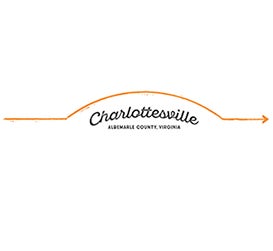
106.1 The Corner welcomes John Paul White
106.1 The Corner welcomes John Paul White
with special guest Lera Lynn
About John Paul White:
Beulah. It’s a small, complicated word with a tangle of meanings. It’s the title of John Paul White’s new album, his first in nearly a decade, a remarkably and assuredly diverse collection spanning plaintive folk balladry, swampy southern rock, lonesome campfire songs, and dark acoustic pop. Gothicand ambitious, with a rustic, lived-in sound, it’s a meditation on love curdling into its opposite, on recrimination defining relationships, on hope finally filtering through doubt.
Beulah is also a White family nickname. “It’s a term of endearment
around our house,” White explains, “like you would call someone
‘Honey.’ My dad used to call my little sister Beulah, and I call my daughter Beulah. It’s something I’ve always been around.”
Beulah is also something much loftier. For the poet and painter William Blake, Beulah was a place deep in the collective spiritual unconscious. “I won’t pretend to be the smartest guy in the world,” says White, “but I dig a lot of what he’s written. Beulah was a place you could go in your dreams. You could go there in meditation, to relax and heal and center yourself. It wasn’t a place you could stay, but you came back to the world in a better state.”
And perhaps the music on this album originated in that “pleasant lovely Shadow where no dispute can come.” According to White, the songs came to him unbidden—and not entirely welcome. “When these songs started popping into my head, I had been home for a while and I was perfectly happy. I wasn’t looking for songs. I didn’t know whether any would pop back in my head again, and I was honestly okay with that. I’m a very happy father and husband, and I love where I live. I love working with artists for a label that I think is doing good work.”
Far from the grind and glamour of Nashville—where he worked for years as a working songwriter before stepping into the spotlight himself—White settled in his hometown of Muscle Shoals, Alabama, a wellspring of gritty Southern rock and soul since the 1960s. Together with Alabama Shakes keyboard player Ben Tanner and Shoals native Will Trapp, he founded and runs Single Lock Records, a local indie label that has released records by some of the Yellowhammer State’s finest, including Dylan LeBlanc, St. Paul & the Broken Bones, and legendary songwriter and keyboard player Donnie Fritts. The label is based in a small ranch house a stone’s throw from White’s own home, which would come in handy when those songs started invading his head.
“Honestly, I tried to avoid them, but then I realized the only way I was going to get rid of them was if I wrote them down. I got my phone out and I’d sing these little bits of melody, then put it away and move on. But eventually I got to a place where it was a roar in my head, and that pissed me off.” Due to his experiences as a gun-for-hire in Nashville, White was reluctant to romanticize the creative process, to turn it into a spiritual pursuit. “Then one day I told my wife I think I’m going to go write a song. She was as surprised as I was. I went and wrote probably eight songs in three days. It was like turning on a faucet.”
Most artists would kill for such a downpour, but White was wary of the consequences. He knew that writing songs would lead to recording them, which would result in releasing them, and that means touring and leaving home for weeks at a time. “As soon as I write a song, I start thinking what other people might think of it. I’ve talked to friends about this: What is it about us that makes us do that? Why can’t I just sit on my back porch and sing these songs out into the ether? I don’t have an answer for it yet, but I think it’s just part of who I am. I need that reaction. I need to feel like I’m moving someone in a good way or in a bad way. I need to feel like there’s a connection.”
White threw himself into the project, no longer the reluctant songwriter but a craftsman determined to make the best album possible—to do these songs justice. He cut several songs at the renowned FAME Studios in his hometown, where Aretha Franklin, Wilson Pickett, the Allmans, the Osmonds, Bobbie Gentry, Arthur Conley, and Clarence Carter recorded some of their most popular hits.
One product of those sessions is “What’s So,” which introduces itself by way of a fire-and-brimstone riff, as heavy as a guilty conscience—the kind of riff you wouldn’t be surprised to hear on a Sabbath album. But White’s vocals are gritty and soulful, a product of the Shoals, almost preacherly as he sings about earthly and eternal damnation: “Sell your damn soul or get right with the man, keep treading water as long as you can,” he exhorts the listener. “But before you do, you must understand that you don’t get above your raisin’.” It’s the heaviest moment on the record, perhaps the darkest in White’s career.
At the other end of the spectrum is “The Martyr,” one of the catchiest tunes White has ever penned. The spryness of the melody imagines Elliott Smith wandering the banks of the Tennessee River, yet the song is shot through with a pervasive melancholy as White wrestles with his own demons. “Keep falling on your sword, sink down a little more,” he sings over a dexterous acoustic guitar theme. This is not, however, a song about some unnamed person, but rather a pained self-diagnosis: “These are the wounds that I will not let heal, the ones that I deserve and seem so real.” White knows he’s playing the martyr, but he leaves the song hauntingly open-ended, as though he isn’t sure what to do with this epiphany beyond putting it in a song.
The rest of Beulah was recorded in the Single Lock offices/studio near White’s home. “I can be more relaxed about the process. We can all just sit there and talk about records or baseball without feeling like someone’s standing over our shoulders. That’s a big deal to me, not to feel pressured. And I’m only about twenty yards away from home, so I can walk over and throw a baseball with my kids or make dinner with my wife.”
Some of the quieter—but no less intense—songs on Beulah were created in that environment, including the ominously erotic opener “Black Leaf” and the Southern gothic love song “Make You Cry.” As he worked, a distinctive and intriguing aesthetic began to grow clearer and clearer, one based in austere arrangements and plaintive moods. These are songs with empty spaces in them, dark corners that could hold ghosts or worse. “There were certain moments when Ben and I would finish up a song, listen back to it, and think how in the world did we get here. But that’s just what the songs ask for. These are the sounds in my head. This is the sound of me thinking and living and breathing and doing.”
Once White had everything assembled and sequenced, it was time to give the album a title, to wrap everything up for the listener. Beulah stuck—not only because of family history or Blake, but because White realized that making music was his own trip to Beulah. “If you had to sum up what music is for most people in this world, it’s that. It’s that escape. It’s that refuge. You go there and you come back and you use that to help you with your life. You always have that as a place to go.”
About Lera Lynn:
Singer-songwriter. Co-producer. Multi-instrumentalist. Lera Lynn juggles multiple roles on Resistor, an album that finds the Nashville transplant embellishing her Americana roots with a mix of spacey, left-of-center rock and experimental pop-noire.
Following the 2014 release of her critically-acclaimed sophomore release, The Avenues, Lynn spent 2015 in a creative whirlwind, kicking off the year with an appearance on The Late Show with David Letterman and, months later, wrapping things up with a 39-date headlining fall tour. Along the way, she also played a role in shaping the dark direction of True Detective's second season, both appearing in the popular HBO series as a barroom singer and contributing a handful of original songs to the show's soundtrack. The response was overwhelming. True Detective's teaser trailer, which featured a clip of Lynn's "The Only Thing Worth Fighting For" (co-written with Rosanne Cash and T Bone Burnett), racked up more than 35 million views in a matter of months, giving Lynn the assurance that a wide audience did, indeed, exist for her brand of otherworldly music.
Resistor at once embraces the darker and more provocative sides of Lynn's songwriting. Moody and muscular, it pairs Lynn's voice — a warm, anchoring instrument that sweeps its way through all 10 songs — with the deep-seated rumble of baritone guitars, the atmospheric swirl of keyboards, and the gauze of her own double-tracked harmonies. Lynn and her co-producer, Joshua Grange, play nearly every instrument on the album, which was tracked during a series of spontaneous, experimental recording sessions in Nashville. While The Avenues couched Lynn's voice in layers of pedal steel and other folky instruments, Resistor takes a different approach, focusing on texture rather than twang.
From the percussive pulse of "Shape Shifter" to the greasy, slow-motion strut of "Little Ruby," Resistor finds Lynn in the captain's chair, confidently steering her ship into uncharted waters. "Drive," the album's most propulsive track, conjures up images of late-night road trips through the American desert, while songs like "Fade Into the Black" and "For the Last Time" sway and swoon, occupying the intersection where slow dances, lullabies and the soundtrack of David Lynch's "Blue Velvet" all connect. An independent album in every regard, Resistor was funded and created not by a big-budget label, but by a songwriter who continues to maintain complete control over her art. It's the sound Lera Lynn has always heard in her head, and never has that sound been more clearly presented than it is here.
“Resistor has this otherworldly quality to it, this darkness, this sense of atmosphere and space,” says Lynn. “We used a lot of baritone guitar, which at once roots and spears through everything, with the vocals floating above and around. There's a slow-burning intensity that at times sounds a little spooky. It's creepy and lovely."
Lynn gained respect early in her career with her 2011 LP release, Have You Met Lera Lynn? The collection included her song “Bobby, Baby,” which won Merlefest’s 2011 Chris Austin Songwriting Competition (an honor she shared with Gillian Welch and Tift Merritt) and best alternative country song at the Independent Music Awards. Following the album’s release, she walked away with best country artist honors at Athens’ Flagpole Music Awards.
Lera Lynn followed up the debut album with a hair-raising cover of June Carter Cash’s classic “Ring of Fire,” recently heard on the hit TV show Pretty Little Liars, backed with the original “Don’t Make Me Wait.” With her 2014 EP release, Lying in the Sun, Lynn illustrates her versatility even further, doing much of the playing and even engineering and producing.
She made her national TV debut on the “Late Show with David Letterman,” in January, 2015 ending with David saying, “Beautiful, remember you heard it here first”. In addition Lera performed on numerous radio shows across the country including NPR’s A Prairie Home Companion with Garrison Keillor as well as sessions on NPR World Café, NPR Mountain Stage, Acoustic Café, and Sirius XM’s The Loft.
In 2014, Lynn self-released her sophomore album, The Avenues, which continues to receive praise and critical acclaim from many sources. The album was covered by NPR’s popular “All Things Considered,” and appeared in the “Top 50 Albums of the Year” from American Songwriter (ranking #14), Rolling Stone, Huffington Post and numerous other “Best Albums of the Year” lists.
Since 2012, Lera Lynn has experienced an incredible run of touring, performing in listening rooms, concert halls, and festivals in North America and the UK which included stops at Hardly Strictly Bluegrass, showcases at the Americana Music Fest, Stagecoach Festival and the Cambridge Folk Festival. Lera ended 2015 with a 38 city headlining tour taking her coast-to-coast. If you catch Lera performing live these days, it will be with her ace band or on the rare occasion, playing as a duo with Grange. Either way, you’ll see a natural in action. “My favorite part of this job is performing in a live setting, and seeing the potential to move people through music.” Lynn’s shows are intimate regardless of venue type and feature songs spanning from her earliest recordings to the most current, including some unexpected covers.
Over the course of five years, with three albums, a self produced EP and a Soundtrack under her belt, this fiercely independent musician has developed into a distinguished and multi talented artist. “I think I’m just growing into myself a little bit—embracing whatever it is that makes me who I am as an artist and person. That comes with age, too. As you get older you feel more comfortable with being yourself. I think the new record is going to be even more of an illustration of whatever it is that I have to offer that’s unique.”
Read More
Design VisualSHOWINGS
This event has already occurred.
The Southern
-
Fri, Jan 16, 2026
Krispies, No Composure, The Coast, & Loose Champagne
-
Sat, Jan 17, 2026
The Psycodelics
-
Mon, Jan 19, 2026
(Almost) Every Monday Open Mic - Hosted by Chris Alan (18+)
-
Tue, Jan 20, 2026
Congress The Band - *Moved To The Jefferson*






